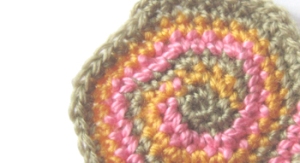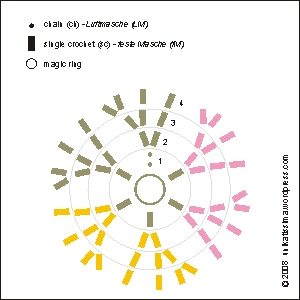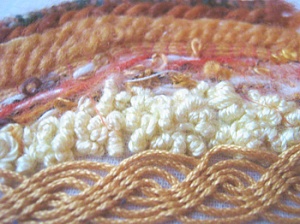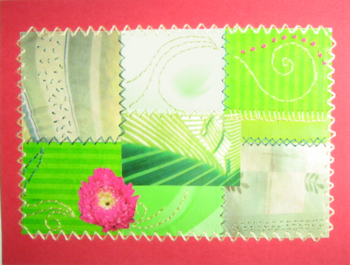
I saw this Tealight Photo Holder. I found the idea stunning, but I didn’t like the look of it: for me it looks like a cut-open tealight ;-)
But then an idea stroke: How easy to make this from plaster!
On the photo you see my plaster photo holder in action ;-)

img 1: Take a toilet paper tube and cut in rings about 4-5 cm height (appr. 1.5 – 2 inches). I did this with the sharp knife on the photo.
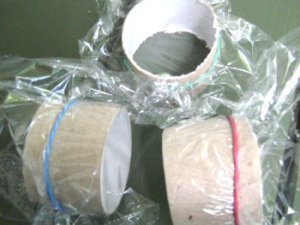
img 2: Wrap foil around, but let one side open. Fix the foil with elastic.
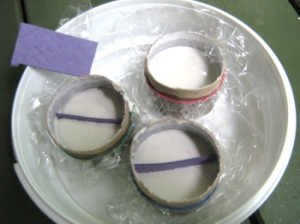
img 3: Fill the forms with plaster to a height of about 2,5 cm (about 1 inch). When full, insert a previously cut piece of cardboard as separator.
Let harden (about an hour).

img 4: When the plaster went hard, but everything is still wet, tear apart the cardboard tube and break the ‘plaster coin’ where the separator cardboard stuck.


img 5: Rub the cardboard rests away.
If your photoholder piece is uneven, now is the moment to fix it: Simply scratch away what you don’t like with the back of an old knife.
img 6: You can embellish them in so many ways.
I painted them immediately with watercolours, but you can also wait until thoroughly dry.
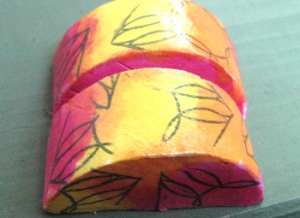
img 7: When dried I stamped them and varnished them with medium gel.
Have fun!
Links:
Tealight Photo Holder
via Photojojo
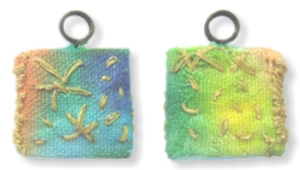
 img 1: Cut 3 equal pieces of your cardboard.
img 1: Cut 3 equal pieces of your cardboard. img 2: Wrap the wire round a dowel to form the eye. Then turn a couple of times to form the peg and then form a bigger eye which will be hidden in the pendant.
img 2: Wrap the wire round a dowel to form the eye. Then turn a couple of times to form the peg and then form a bigger eye which will be hidden in the pendant. img 3: Take the cardboard piece which will sit in the middle and trace your hanger.
img 3: Take the cardboard piece which will sit in the middle and trace your hanger. img 4: Cut out the place you will need for the hanger.
img 4: Cut out the place you will need for the hanger. img 5: Glue the hanger and the middle cardboard pieces onto one outer cardboard piece.
img 5: Glue the hanger and the middle cardboard pieces onto one outer cardboard piece.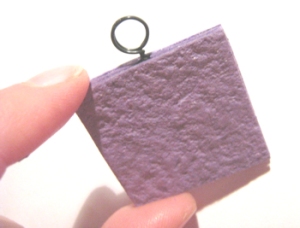 img 6: Glue the other outer cardboard piece onto. Your pendant-to-be-embellished is finished and you may begin with the embellishments.
img 6: Glue the other outer cardboard piece onto. Your pendant-to-be-embellished is finished and you may begin with the embellishments.

